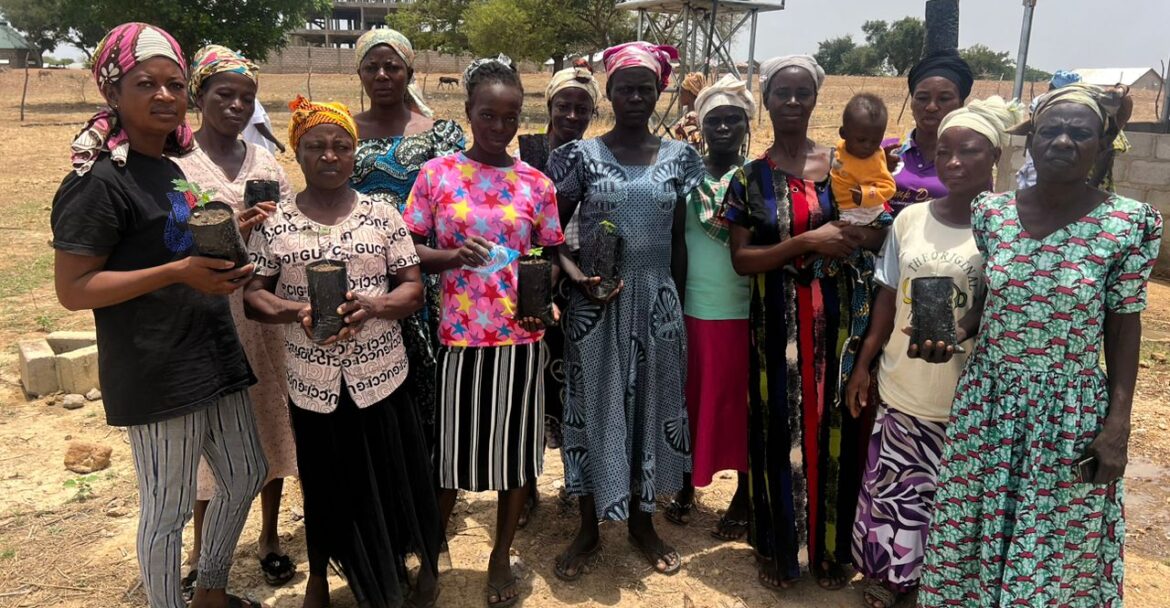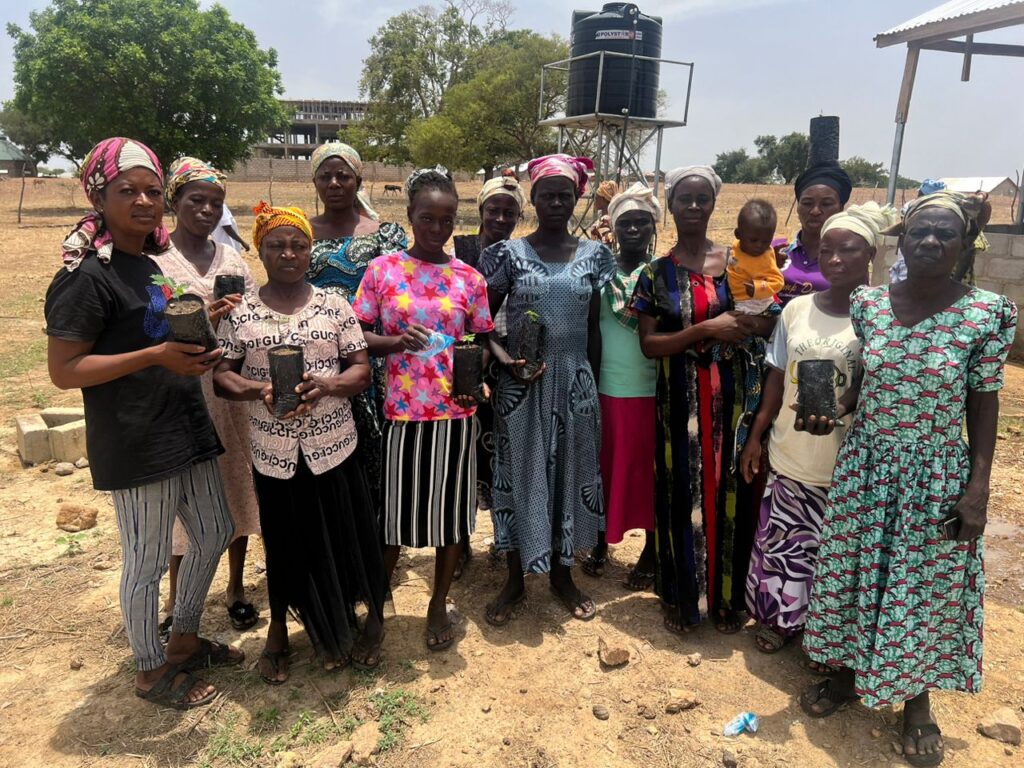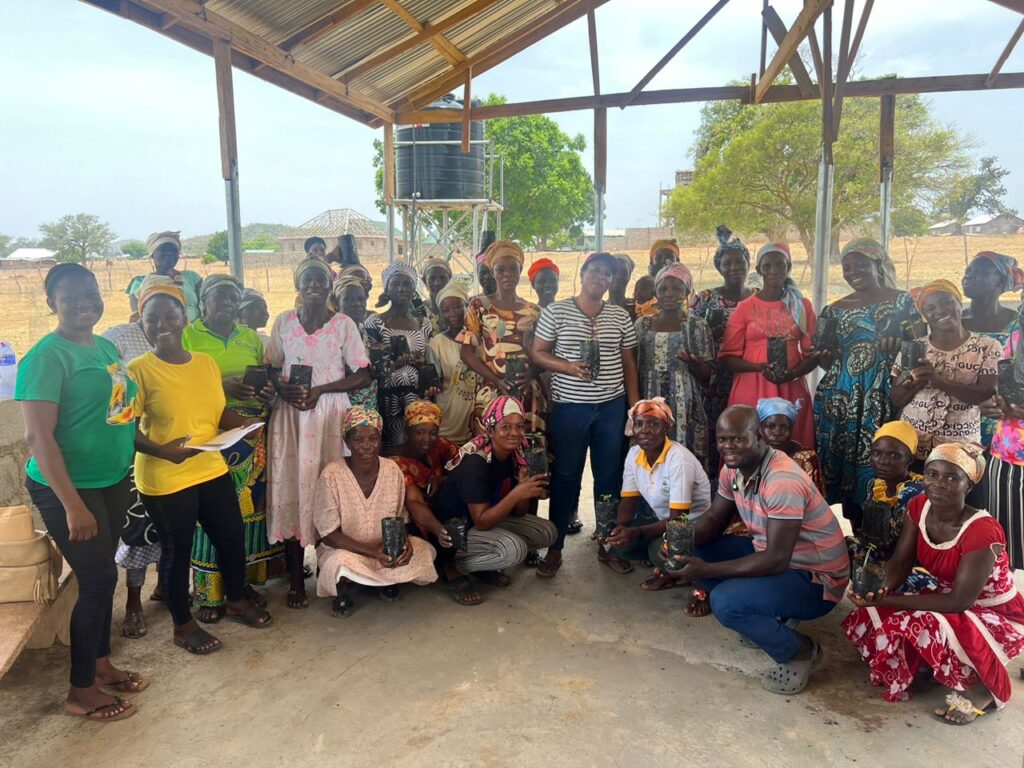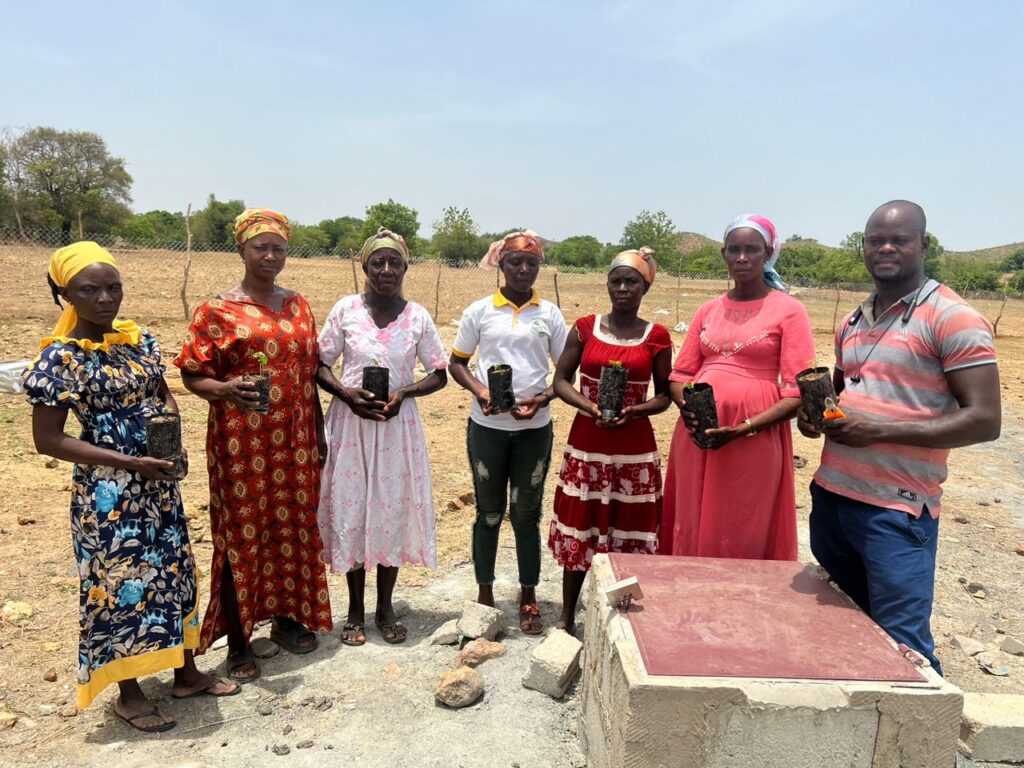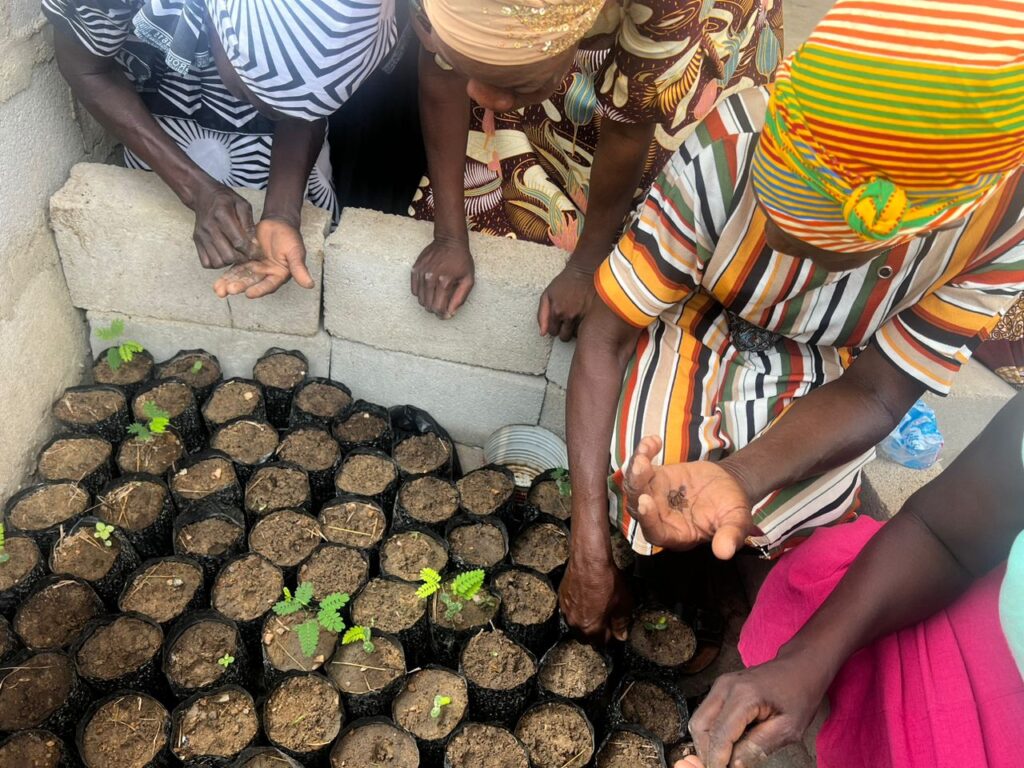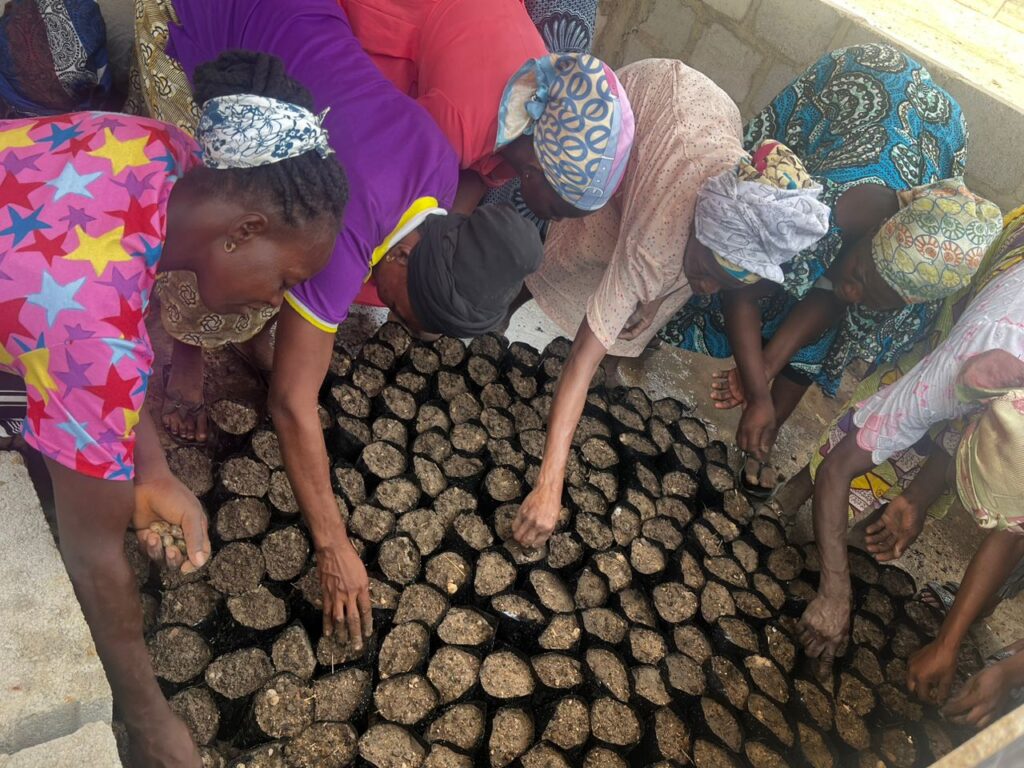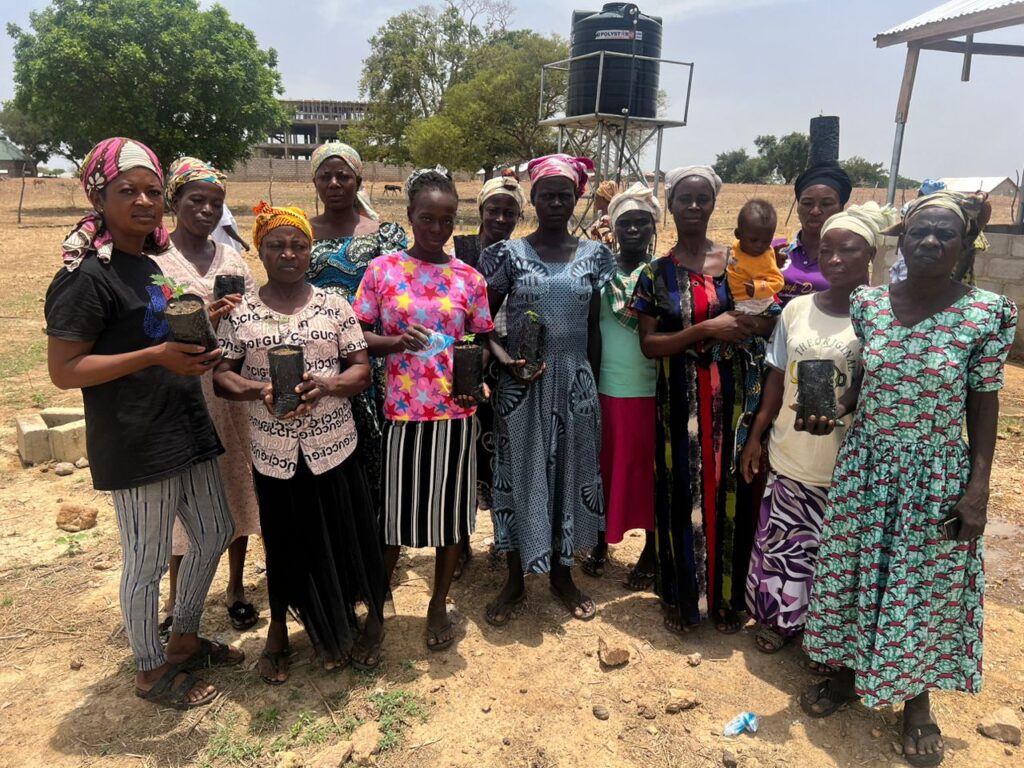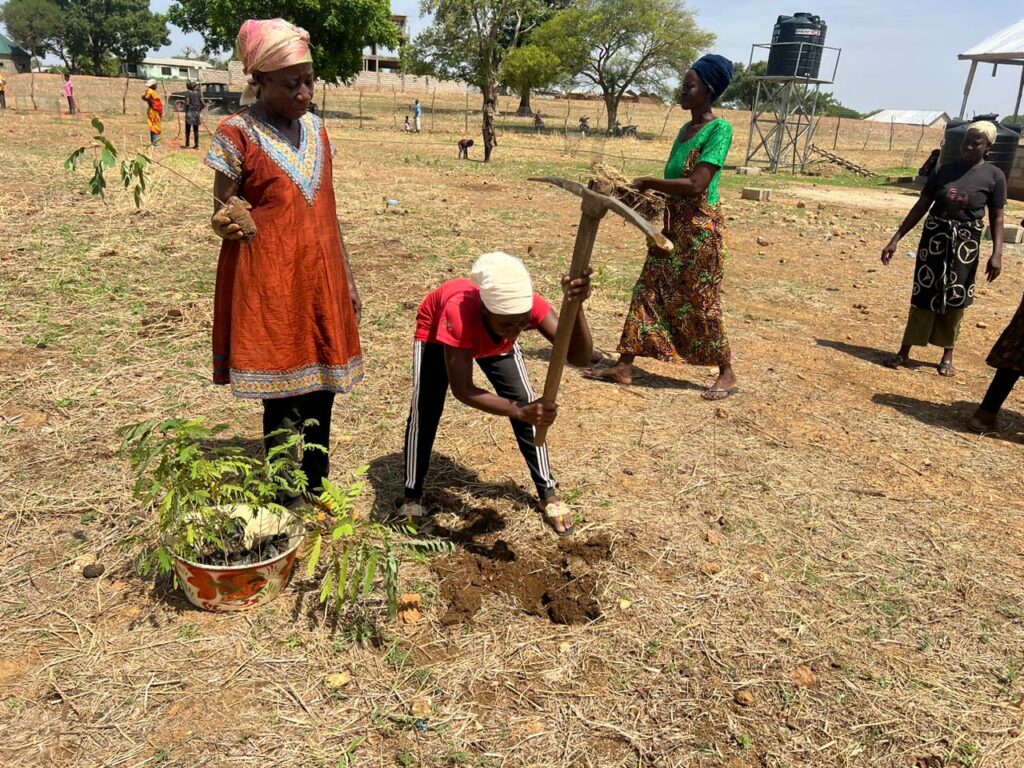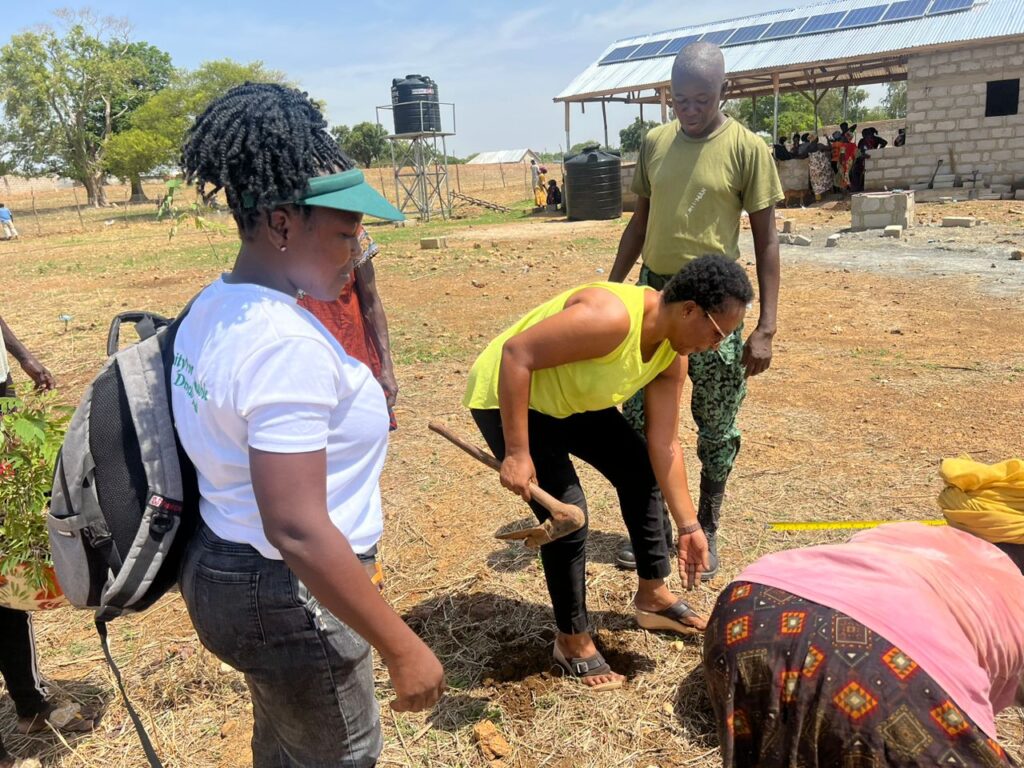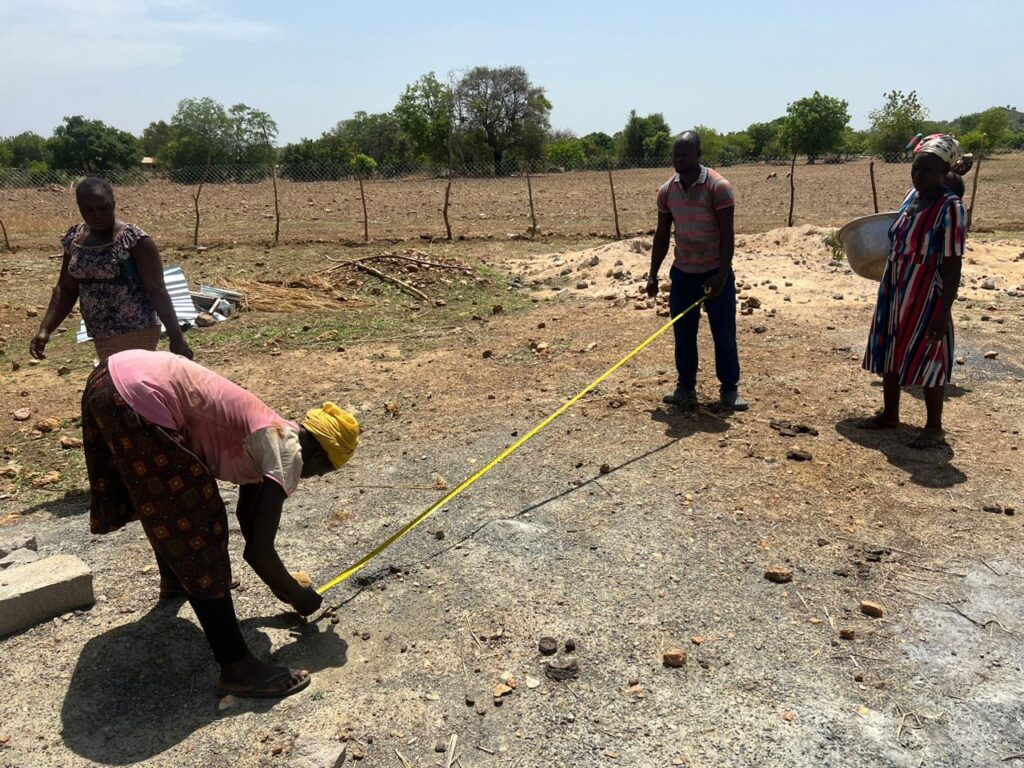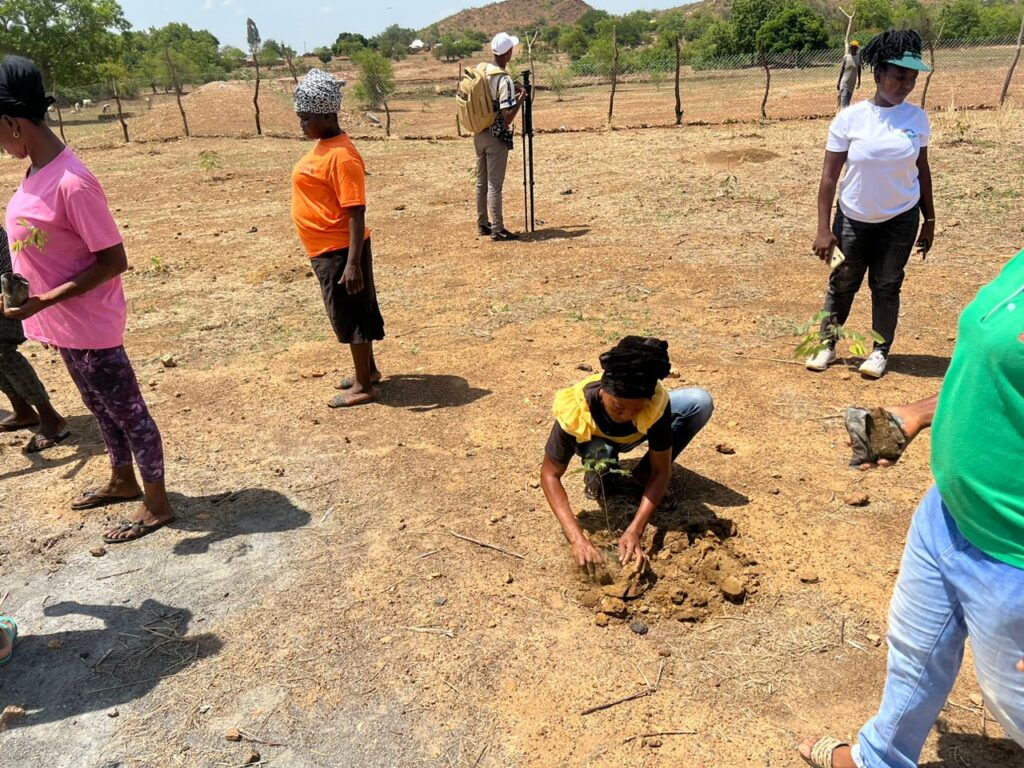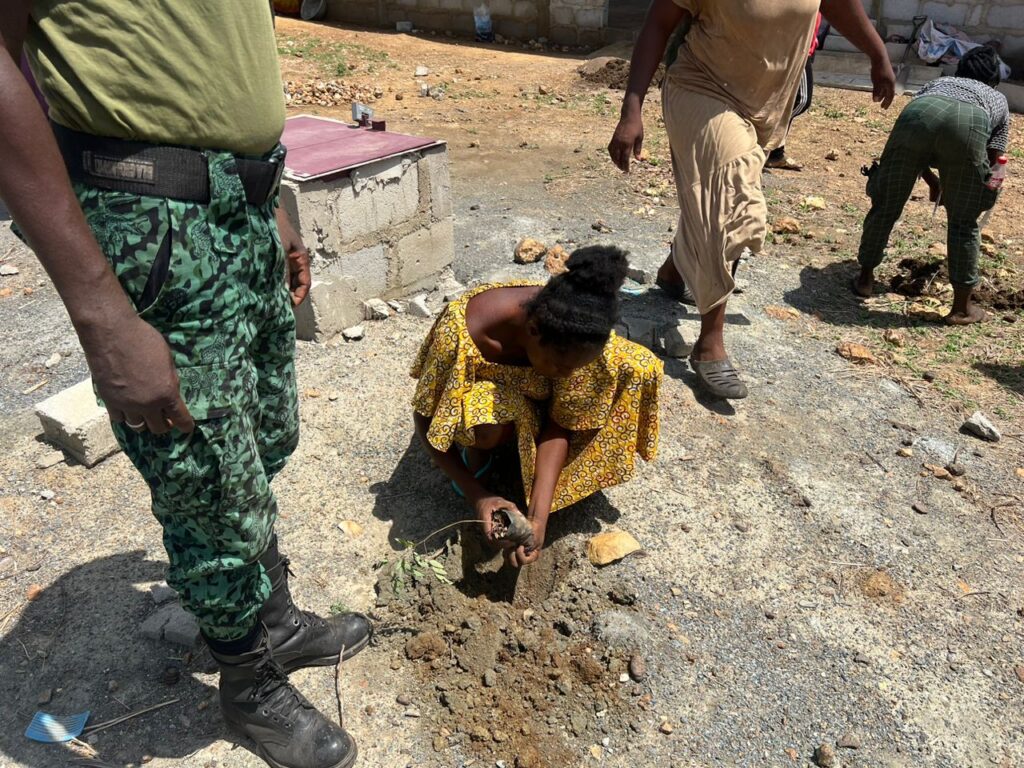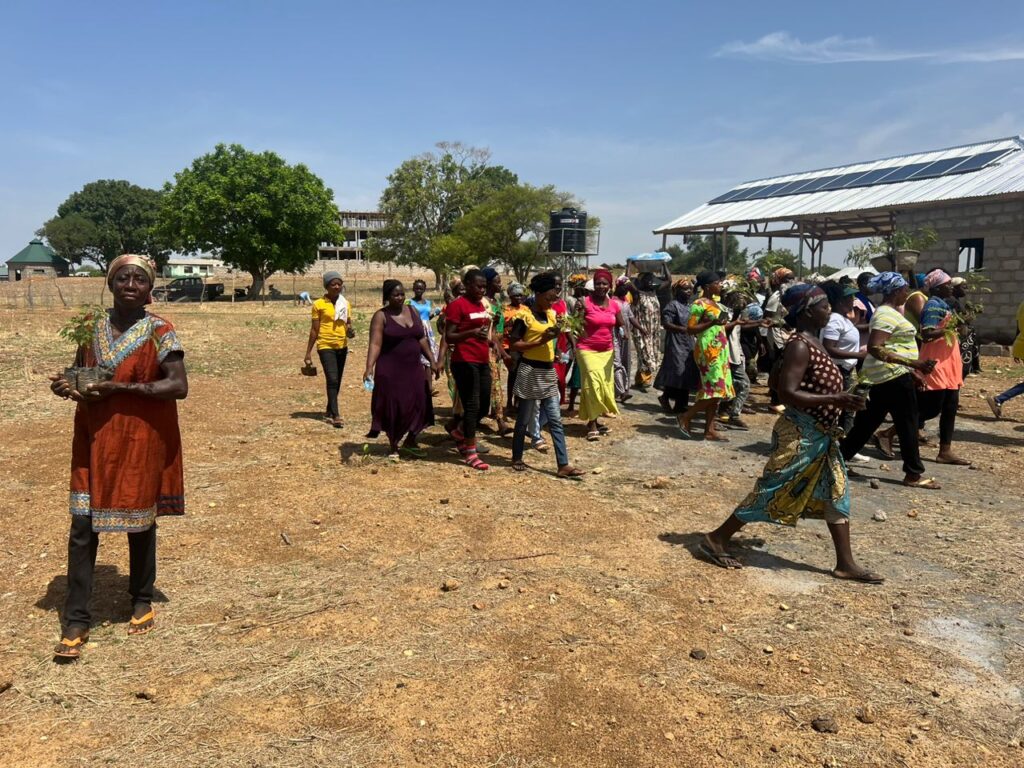This project is dubbed: “The Forest and Farm Facility (FFF) Phase II Climate Change Resilient Landscapes and Improved Livelihoods”. FFF is a subsidiary of the Food and Agriculture Organization of the United Nations (FAO) and Maaltaaba Peasant women Farmers’ Co-operative (Maaltaaba or MAPEWFAC) LBG located in Bolgatanga, Upper East Region, happens to be one of its direct grant beneficiary in Ghana.
This FFF grant is specifically targeted at investing in Maaltaaba by developing women inclusive business advocacy and entrepreneurial skills for sustainable income generation and climate resilient landscapes in Talensi and Nabdam districts of the Upper East Region.
The objective is to provide water accessibility for year-round production for the women farmers to cultivate multiple integrated value chains and with added business incubation capacity, access to finance and markets. This has already seen Maaltaaba provide for the Yameriga Community a Satellite Farm Hut that has a seating capacity of about 200 and will serve as a location for the provision of business capacity to members, product aggregation, value addition and marketing. This investment has therefore been provided with on-site infrastructure and facilities for business development.
Additionally, the project site has been provided with a solar-powered water system with storage facilities on site to boost water accessibility for all-year-round-farming activities for the Maaltaaba women groups at Yameriga in the Talensi district.
Members of the various Maaltaaba groups in both Talensi and Nabdam districts have also gone through business incubation, cooperative capacity development and value addition training organized by the Maaltaaba Business Development Team (BDT) at Bolgatanga early this year in January. This saw participants taken through a series of business incubation ideas in piggery, guinea fowl and goat rearing, fish farming, and their associated value addition/value chain benefits by the resource person, Mr. Issifu Basideen (from Rural Enterprise).
Another critical focal area of this FFF project is bordered on tree planting which is targeted at tackling climate change issues. Tree planting among rural women peasant farmers has numerous benefits for the women, their communities, and the climate. Through nursery activities, women can take charge of their livelihoods, earning income and gaining economic independence. They learn skills in seedling production, nurturing, and tree care, empowering them with the needed knowledge and confidence.
The benefits extend to their communities, as trees provide shade, improve soil fertility, and support biodiversity. This leads to enhanced food security, improved health, and increased resilience to climate change. Women’s involvement in tree planting also fosters community engagement, promoting social cohesion and collective action.
On a larger scale, tree planting contributes significantly to climate change mitigation by absorbing carbon dioxide, reducing greenhouse gas emissions, and supporting ecosystem services. Rural women peasant farmers play a vital role in this effort, demonstrating their potential as agents of positive change. Maaltaaba is committed to planting a minimum of 4,000 tree seedlings throughout its catchment areas in Talensi and Nabdam districts. Thus, each of the women groups in both districts (with more than 10 groups and counting) has a target of planting at least 40 tree seedlings as they use locally prepared manure as a booster towards climate change mitigation in this project dubbed: “Forest and Farm Facility (FFF) Phase II Climate Change Resilient Landscapes and Improved Livelihoods”.
By supporting tree planting initiatives among Maaltaaba rural women, we can promote gender equality, community development, and environmental sustainability. Let us recognize and amplify the impact of these unsung heroes (Maaltaaba rural peasant women farmers), empowering them to continue nurturing a greener, more resilient future for all.
Courtesy: by the executive director of maaltaaba and the women lead leader of Ghaffap.she encourages all stakeholders especially government and donor partners to support women -led organization who are into climate change programmes. She also entreats all FFPOs to support women to plant more trees because women are always affected with all the effects of climate change.

